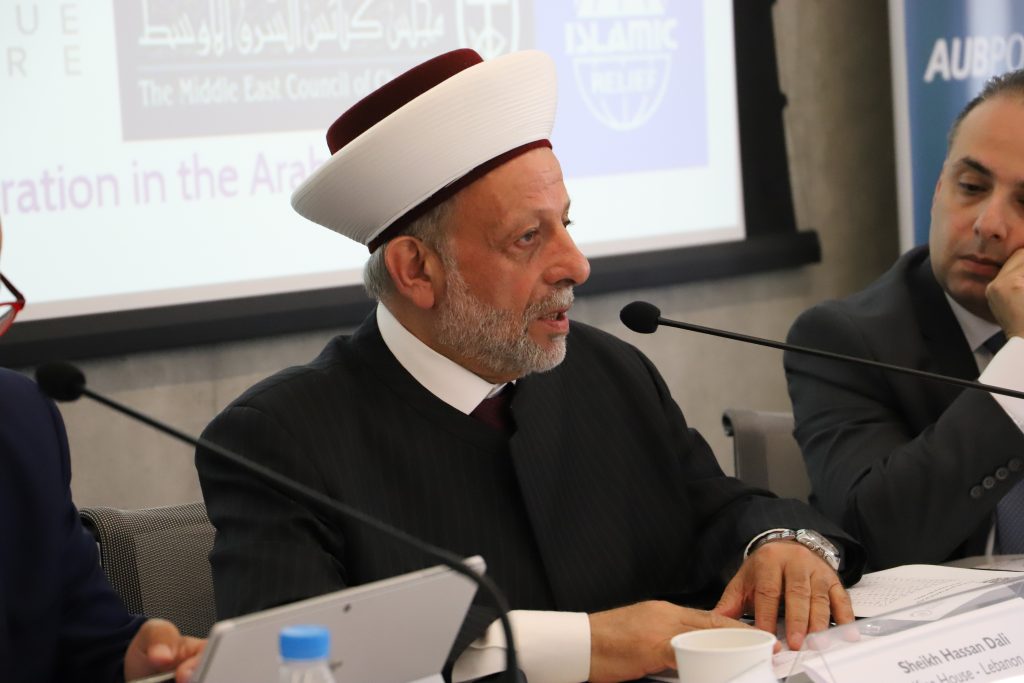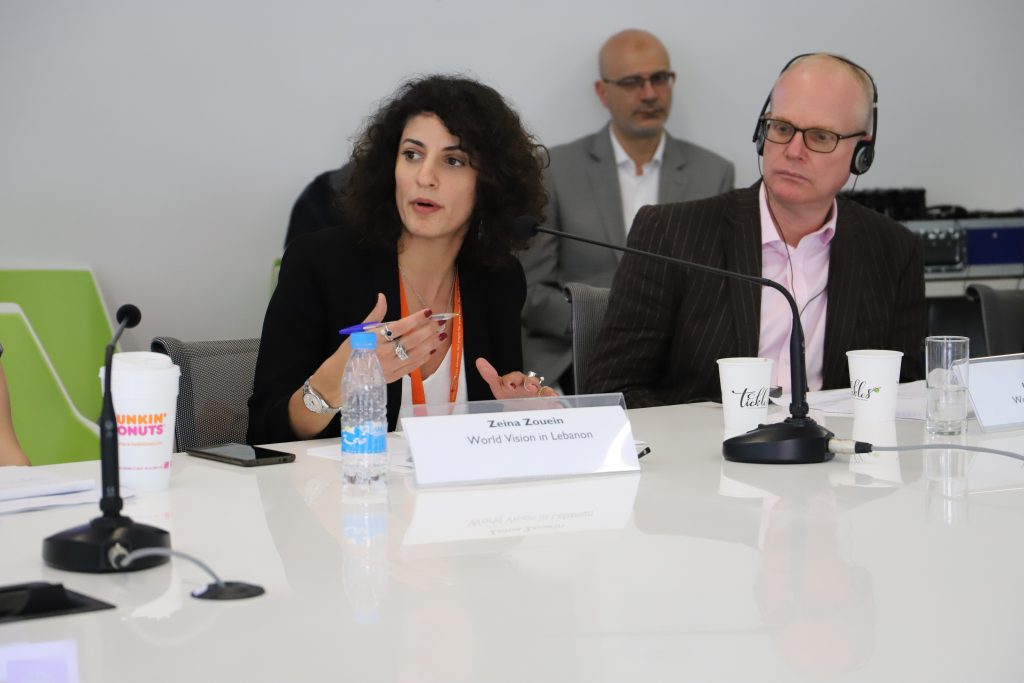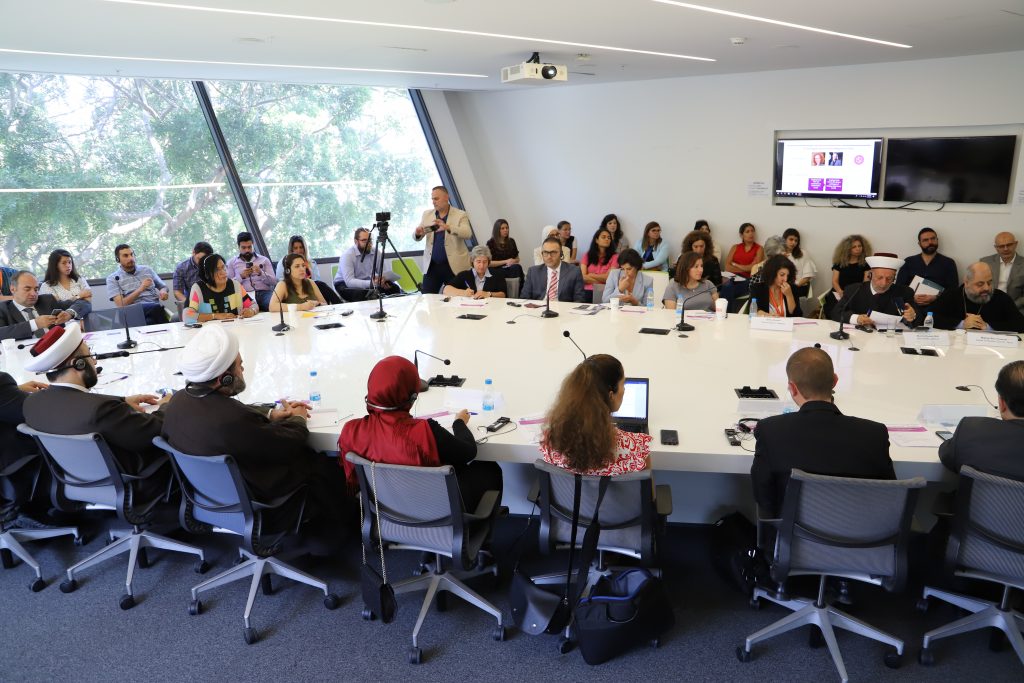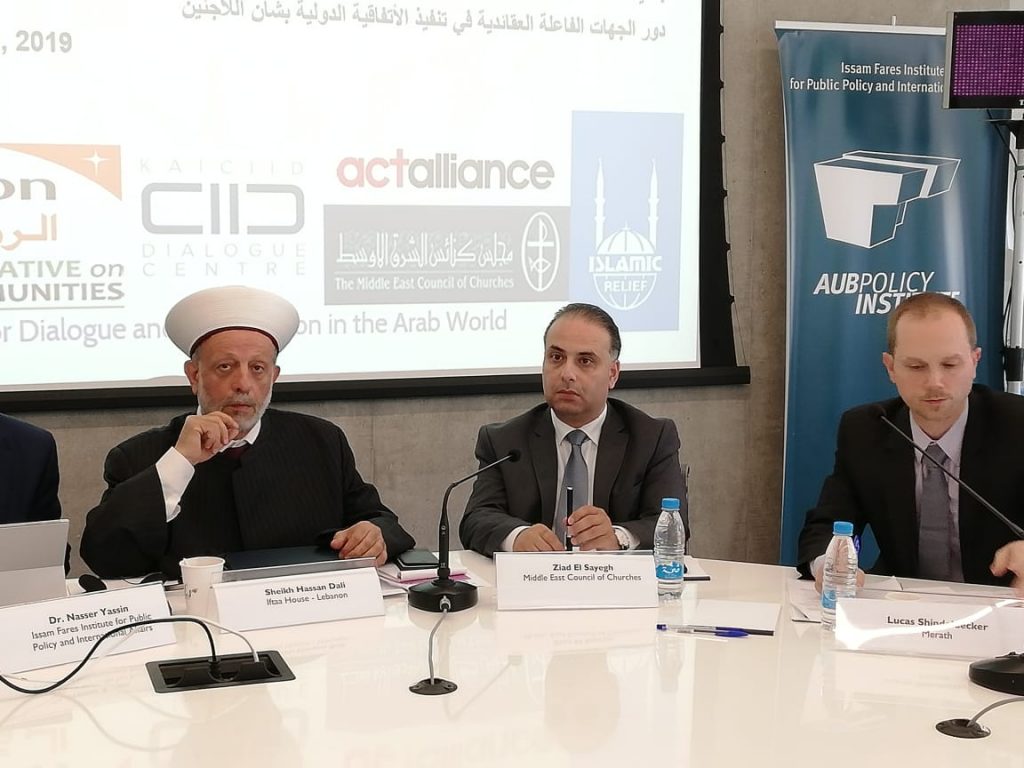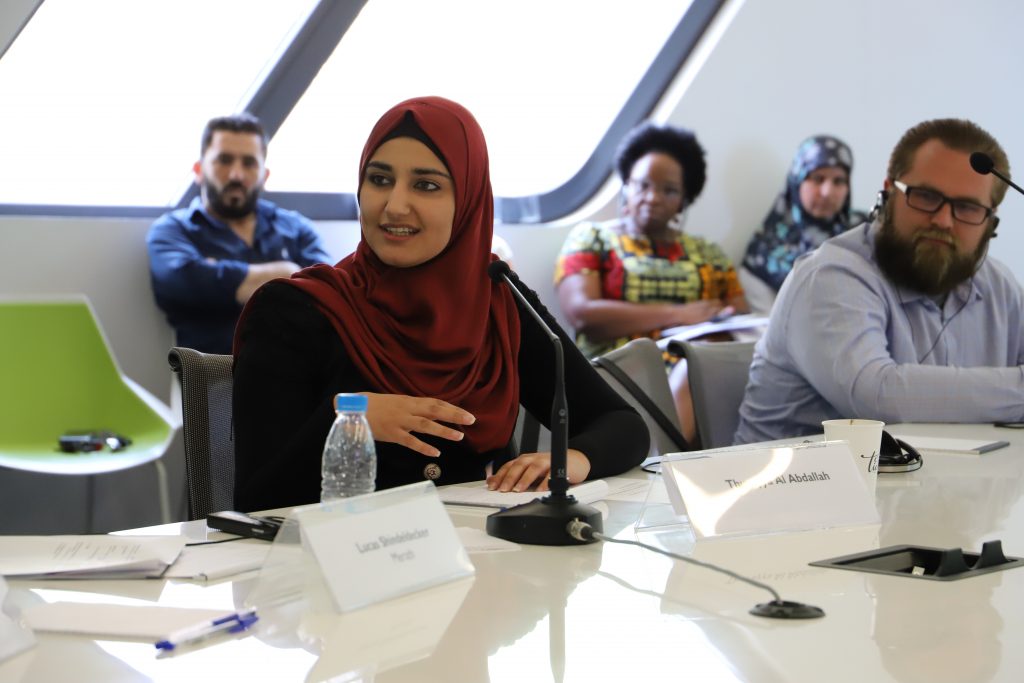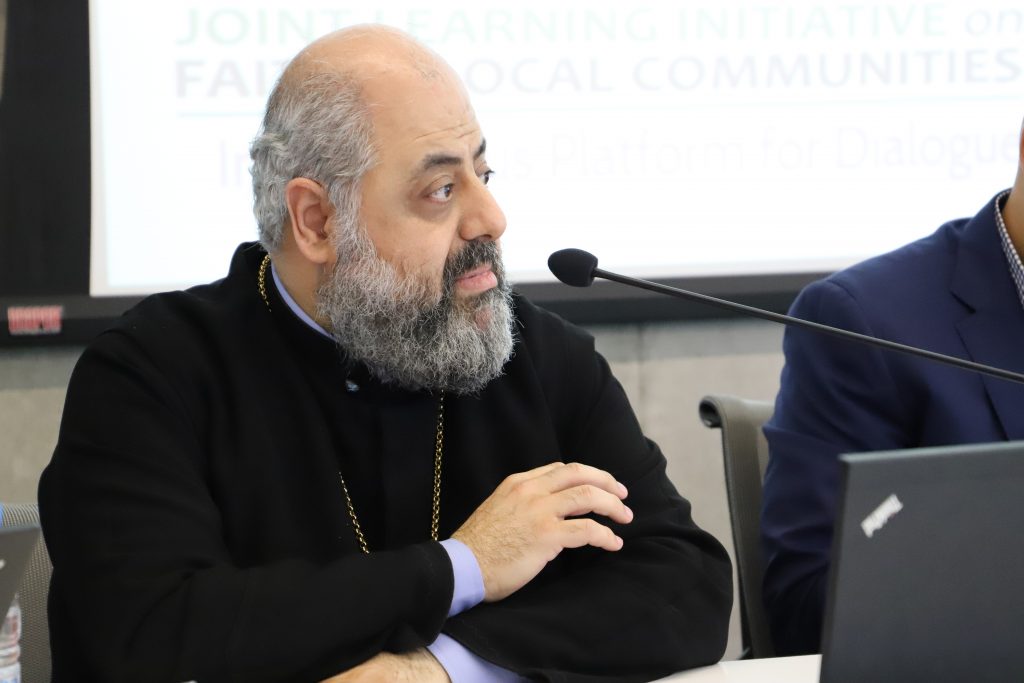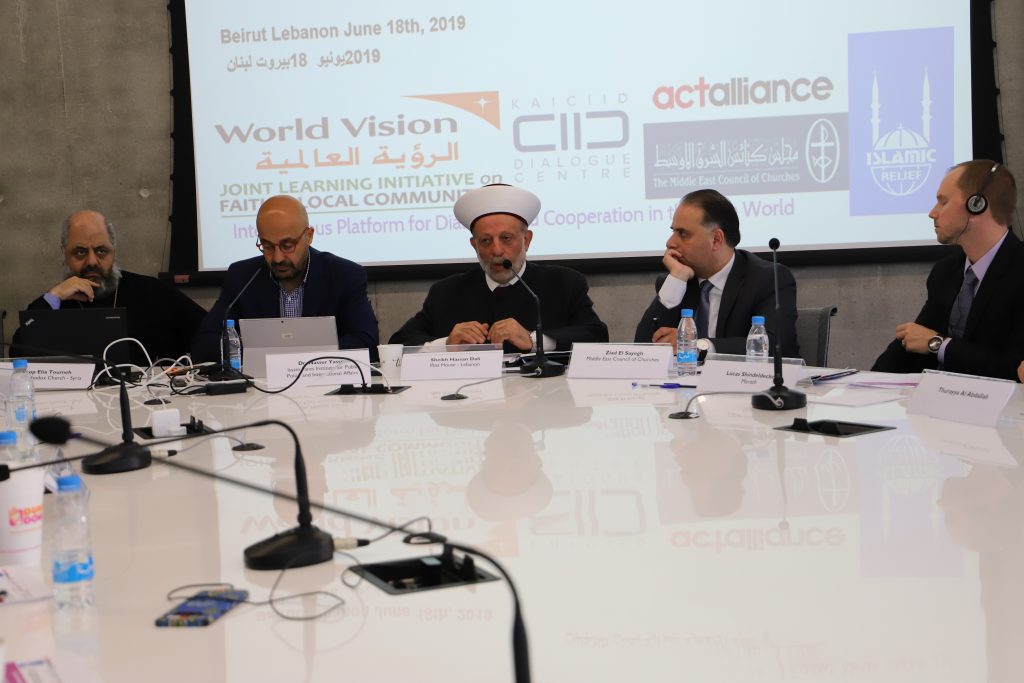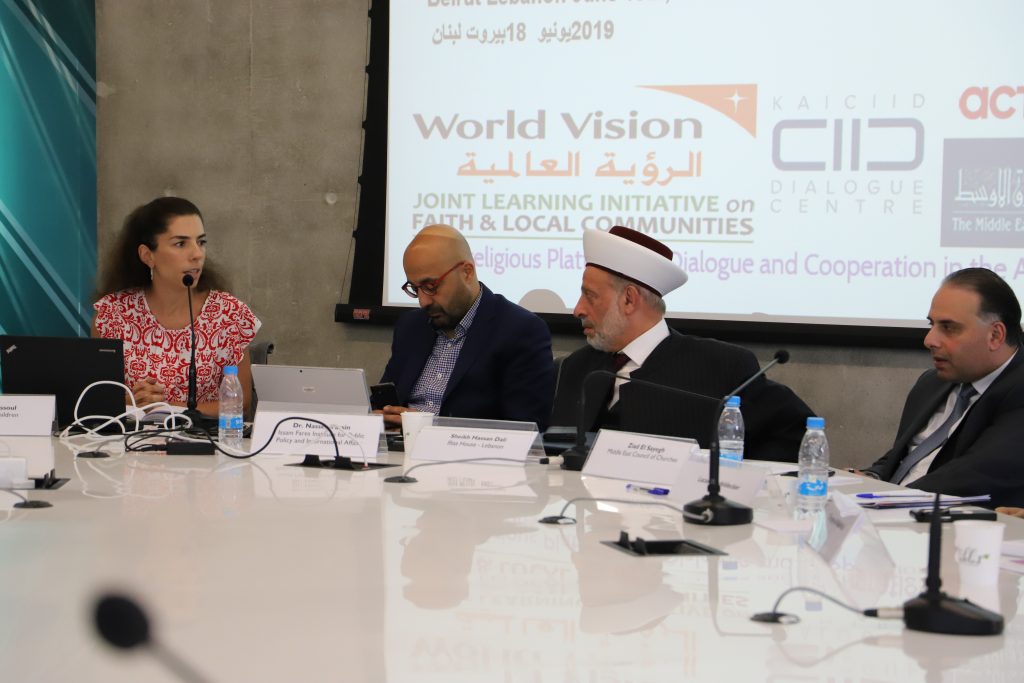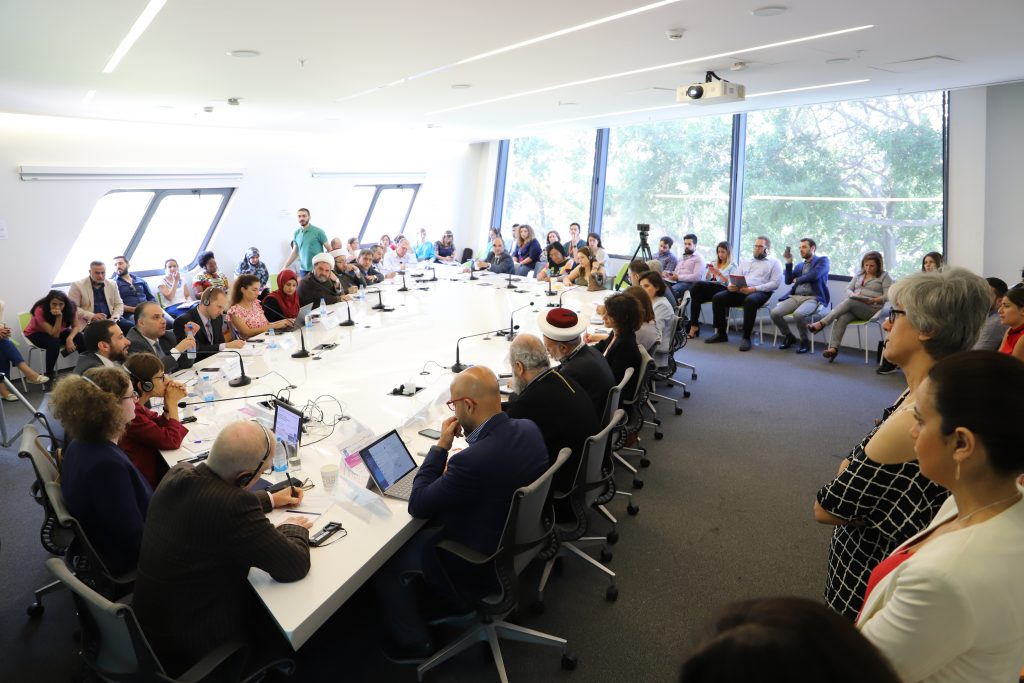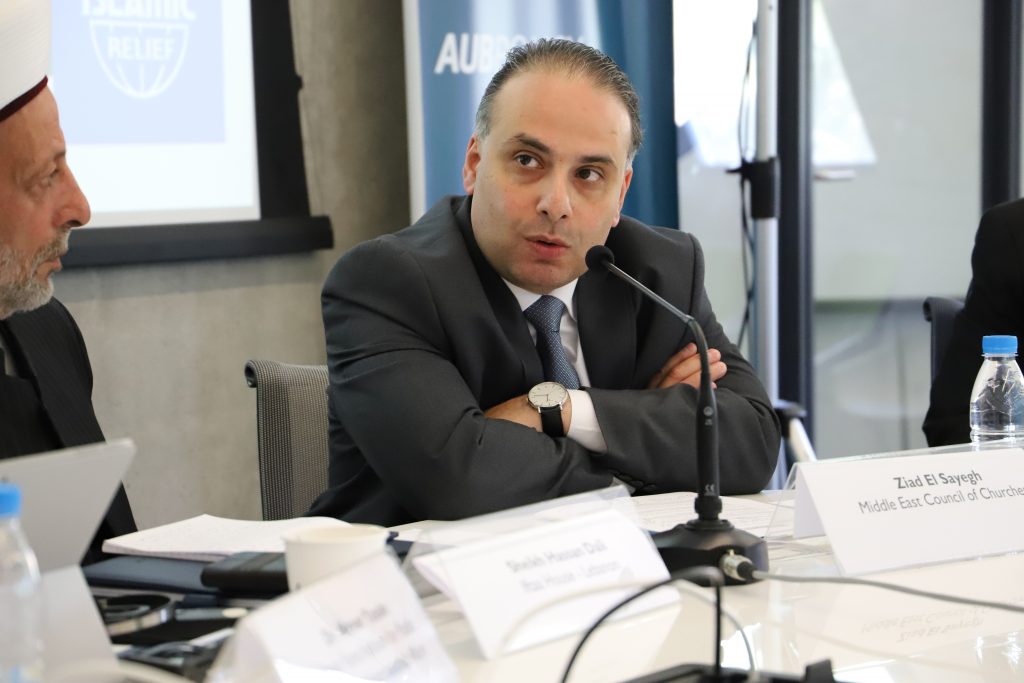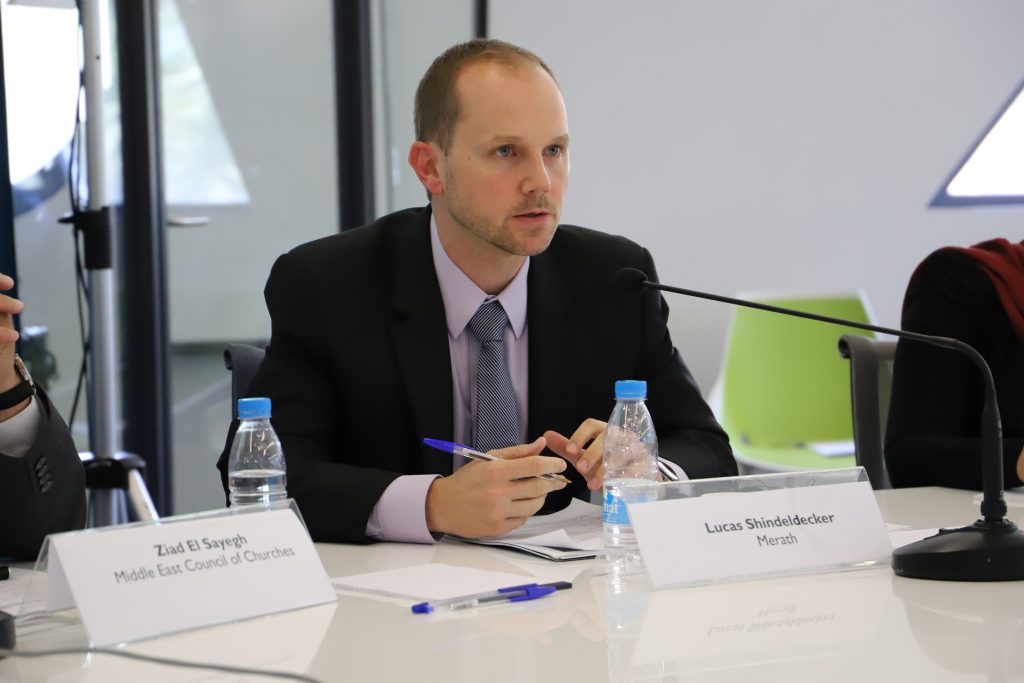AUB Conference on “The Crucial Role of Local Faith Actors Delivering the Global Compact on Refugees”
Ziad El Sayegh from MECC: “Religious authorities should stir the leap towards a healthily diversity management, away from generating xenophobia”.
MECC participated in a conference on ” The Crucial Role of Local Faith Actors Delivering the Global Compact on Refugees”, held on Tuesday, the 18th of June, at the Issam Fares Institute, American University of Beirut.
The role of local faith actors in managing the Refugees and Migrants crisis in the host countries was emphasized. Therefore, these major players must be supported to continue their work in reducing the burden of the Refugees especially in Lebanon, one of the biggest host countries. The conference also aimed at finding common ground to deal with more than 65 million refugees around the world, including millions of displaced persons.
The World Vision National Director Hans Bederski started by addressing the dilemma of communication between the refugees and the host communities.
The UNHCR Lebanon representative Mireille Girard had a word, saying that the Local Faith Actors are relevant throughout this cycle of displacement – from arrival, to eventual return. She noted that these organizations have a sound knowledge of the context, and have a lot of experience in relief support. They also have a role to play in conflict prevention”. “At a time of unprecedented displacement across the world, we have a duty to work together and there is a growing consensus that we need a more unified response”, she added. “The Global Compact for Refugees recognizes that we need to be better and that we need to mobilize everyone and that we all have a role to play”.
In turn, the Ministry of Social Affairs representative Robin Saghbini said that the Local Faith Actors are moving quickly in emergency cases, which is why the ministry encourages the work of the Local Faith Actors, and is willing to cooperate. He emphasized on the role of religious leaders in converging perspectives between the refugees on one hand, and the Lebanese society, on the other hand. There is a need to stop religious and ethnic discrimination towards refugees.
During a panel discussion, the MECC Policies and Communication Advisor Ziad EL Sayegh explained that “Both Global Compacts for Migrants and Refugees are built on the obligation to respect human dignity and peace in society and to implement justice. These are fundamental values in all religions”. “It is disappointing to stay imprisoned by suicidal political choices, instead of adopting public policies based on respecting human dignity and endeavoring to lighten the burden of human misery”, he said. Speaking of extremism, Ziad El Sayegh pointed out that “today, across the world, and in the Middle East, there is a rise of nationalist extremism and xenophobia”. He highlighted the serious indicator of the extreme right rising in Europe, as right winged parties gained 3% in the elections, although still not in majority. “We must not get into the executioner/victim logic, because both refugees and host communities are tormented by this crisis”.
For his part, the Mufti of Hasbaya and Marjayoun, Judge Sheikh Hassan Dali said that during his work with the refugees, he never asked them about their religion or political view. The Mufti expressed his regret that no international organization has intervened to provide relief for the refugees and the Lebanese since the outbreak of the Syrian war in 2011.
The Bishop of Wadi Al Nasara H.E. Elia Toumeh, explained that the Church deals with the issue of displacement in comparison with Christ’s refuge to Egypt. In contrast, he stressed that with the arrival of the refugees to his diocese, all the infrastructure collapsed and the problems started with the local citizens. H.G revealed the establishment of the “Encounter of Love” Center to bring closer the views between the refugees and the host society.
The Conference closed on several recommendations:
1. Establishing a council that brings together leaders from all the religions and denominations to deal with Refugees issues, playing an influential role in decision-making and confronting the hate speech through scholarly and social solutions.
2. Supporting all the relief field workers by enhancing their knowledge in terms of culture, relief work and international laws as well as psychological formation.
3. Establishing direct contact with donor countries that participated at the “Brussels 3” conference to urge them to fulfill their promises.
4. Urging the religious organizations and leaders for a major reconciliation effort to remove the feeling of hatred between the Lebanese and Syrians.
5. Signing an agreement among the religions leaders on priorities such as children’s rights and early marriage. Then, accordingly, moving on to capacity building trainings for social workers and then providing them with the necessary field equipment.

